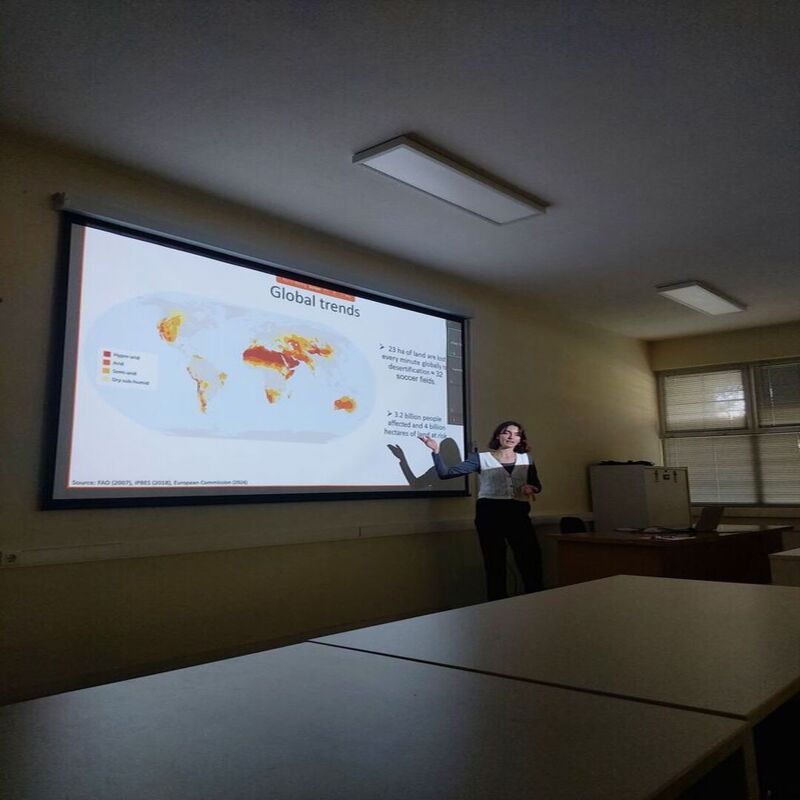Erasmus students at the PHYGEO ENVI Lab
Last week, the Erasmus students of the Belgian University KU Leuven, Charnelle Kluth and Delia Moens de Hase completed their three-month internship at the Laboratory of Physical Geography and Environmental Impacts (PHYGEO ENVI Lab) of the School of Rural, Surveying and Geoinformatics Engineering of the National Technical University of Athens.
Both theses were carried out under the supervision of Prof. NTUA Maria P. Papadopoulou and Postdoctoral Researcher at KU Leuven Eirini Skrimizea and the successful collaboration with them and their colleagues.
Mrs. Kluth’s thesis topic is “How do the current processes of urban greening in the Athens-Metropolitan Area contribute to building heat resilience?”.
Urban Green Infrastructure (UGI) and Nature-based Solutions (NBS) are increasingly employed for Athens urban cooling mechanisms, and Athens also has integrated these into its resilience strategies with a view to build heat resilience in the region.
However, resilience approaches vary: conservative resilience often focuses on absorbing shocks and maintaining the status quo, which can perpetuate vulnerabilities and lead to climate gentrification.
Conversely, transformative resilience seeks systemic change through innovative, inclusive and participatory approaches that aim at social equity and just transitioning, and has been adopted in European Union policies such as the Green Deal and New European Bauhaus.
In Athens, adequate UGI access often mirrors socio-economic disparities, limiting its resilience benefits for vulnerable communities and worsening urban heat risks.
This research uses Athens Metropolitan Area as a case study to evaluate whether adopted UGI strategies by the city are transformative, incremental or conservative. The methodology refers to analyzing the governance and design approaches, aiming at identifying barriers and recommending improvements for transformative resilience to tranfer successfully in Europe.
Mrs. Moens de Hase’s thesis topic is “Climate-Desertification Risk Assessment in Rural Areas of Eastern Crete.”.
The thesis adopts a more holistic approach to build a comprehensive narrative of climate change and desertification risks in eastern Crete.
By thoroughly examining the climatic and non-climatic interactions that contribute to these risks in rural areas, the study aims at providing a deeper insight into the factors resulting climate-desertification dynamics and seeks to answer the following question:
“How do the interactions between climatic and non-climatic factors contribute to the climate-desertification related risks in rural areas of eastern Crete, and what strategies are being developed to manage these risks?”.
To address this question, the thesis focuses on four main objectives:
– To build a comprehensive narrative of climate change and desertification risks in Crete.
– To address the limitations of current climate risk assessments by developing a more comprehensive approach that acknowledges the interactions among the determinants of risk.
– To identify and assess the risks associated with desertification and climate change in rural areas of Crete and how they interact.
– To identify the current responses to climate-desertification related risks and their effectiveness.
Charnelle and Delia, the Laboratory of Physical Geography and Environmental Impacts warmly thank you for your cooperation and wishes you the best in your academic career.




